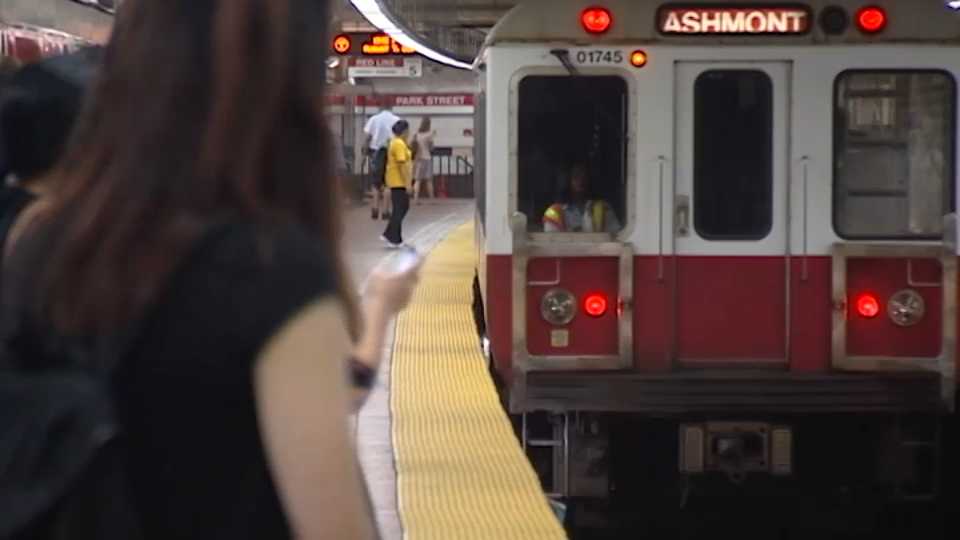As July 2019 came to a close, the top overtime earner at the MBTA began one of his busiest stretches of the month.
Electrical foreman John Devlin worked his regular daytime shift on July 31, then returned shortly before midnight to help with power problems on the Red Line, according to the transit agency’s records.
Devlin worked through the night and stayed for his morning shift the next day. He picked up six more hours of overtime that day, finally heading home after 9 p.m., according to the T’s records.
In all, he was on the clock for roughly 39 hours during that two-day period — a feat of endurance that was significant, but not altogether uncommon for Devlin and other MBTA supervisors, who racked up hundreds of thousands of dollars in overtime pay by working long hours last year.
Overtime spending at the T surged in 2019, according to payroll records reviewed by the NBC10 Boston Investigators, rising from about $43 million two years ago to more than $96 million last year — roughly one quarter of all overtime spending by state government.
Supervisors such as Devlin with the job title of “foreperson/wireperson” were among the top overtime earners. Their responsibilities include overseeing work sites and maintaining, installing and repairing electrical infrastructure.
The job, which is filled by some of the T’s most senior employees, comes with an annual salary of about $115,000. State payroll records show Devlin more than doubled his base salary with overtime work, bringing in an additional $192,000 in overtime pay and boosting his total earnings above $300,000.
Devlin did not respond to a telephone call and email seeking comment from NBC10. Efforts to reach him at this home were also unsuccessful. The union representing him also did not respond to inquiries about their members working such long hours.
Last year, there were 24 MBTA employees with the job title of foreperson/wireperson. Combined, they earned more than $1.5 million in overtime, meaning that, for the amount the MBTA paid them in overtime work, it could have hired more than a dozen people to fill the same position.
With some employees seemingly on duty around the clock, the overtime work also raises a concern about whether they’re performing at the top of their abilities, said Charlie Chieppo, an outspoken transportation watchdog at the Pioneer Institute, a Beacon Hill think tank.
“I think it is a safety concern, and I think that’s one of the reasons we really have to look at this,” Chieppo said.
Leaders at the transit agency say the overtime work last year was necessary for ongoing maintenance, operations and capital projects — particularly work to upgrade the Orange and Red Lines, which are undergoing track replacements and other repairs as the state prepares to receive a new fleet of modern subway cars.
More on MBTA Budget and Safety
At the same time, the T is grappling with a tight labor market that has made it difficult to find job candidates with the skills to supervise work on critical transportation infrastructure, MBTA General Manager Steven Poftak told NBC10.
Nevertheless, Poftak acknowledged the T is reviewing whether having its supervisors work long hours poses a safety concern.
“I want to make sure we aren’t burning people out,” Poftak said Thursday. “I want to make sure we are complying with all safety standards. I also want to acknowledge these folks are working incredibly hard.”
But critics say the overtime work at the agency is unsurprising, given what they describe as a focus in recent years on lowering the headcount at the agency.
In a critical December 2019 report, a panel of safety experts hired to study the transit system by the MBTA’s Fiscal and Management Control Board noted that the T’s workforce dropped to a four-year low during the 2018 budget year, dropping from 6,547 workers the year before to 5,643.
While those numbers are rebounding, the T’s focus on delivering capital improvements and its push to hold the line on spending has been detrimental to the T’s ongoing operations, the report found, concluding there are “serious manpower shortages in critical departments … which may be affecting the safe delivery of services.”
“Our staff interviews and work in the field revealed that leadership feels somewhat defeated, helpless and in some cases hopeless,” the report reads. “There is a general feeling that fiscal controls over the years may have gone too far, which coupled with staff cutting has resulted in the inability to accomplish required maintenance and inspections.”
Poftak told NBC10 Boston the “help wanted” sign is out at the T.
“We are looking to add people in that department so that we can more evenly spread out the work to make sure it’s safe and make sure it’s sustainable,” he said.
T officials say they’re in the process of hiring three more electrical supervisors. The agency is also staffing up with 15 more electricians.
“I think it’s very important to get the overtime under control,” Chieppo said. “In fact, I would say it’s an existential issue because I think it’s symbolic of the most basic things we have to fix.”
Ryan Kath can be reached at ryan.kath@nbcuni.com. You can also follow him on Twitter or connect on Facebook.



